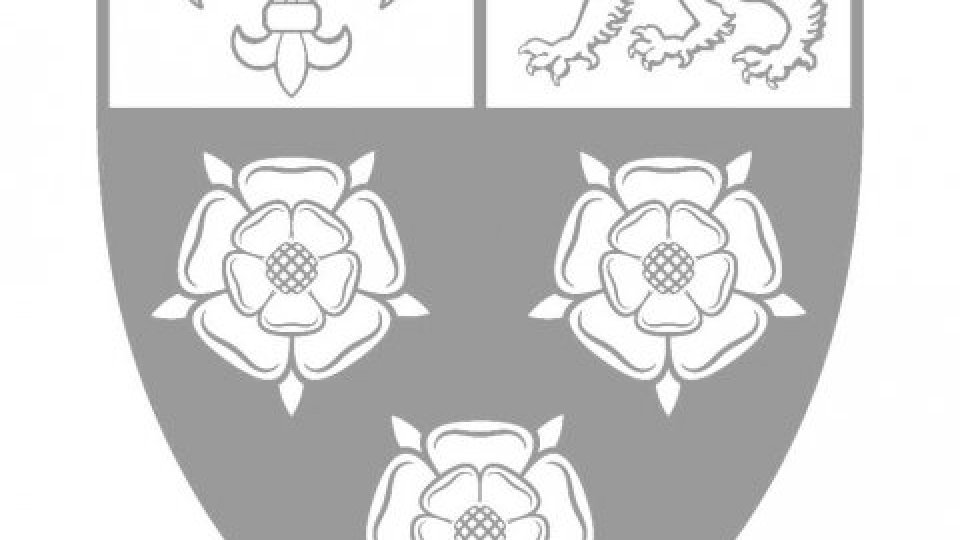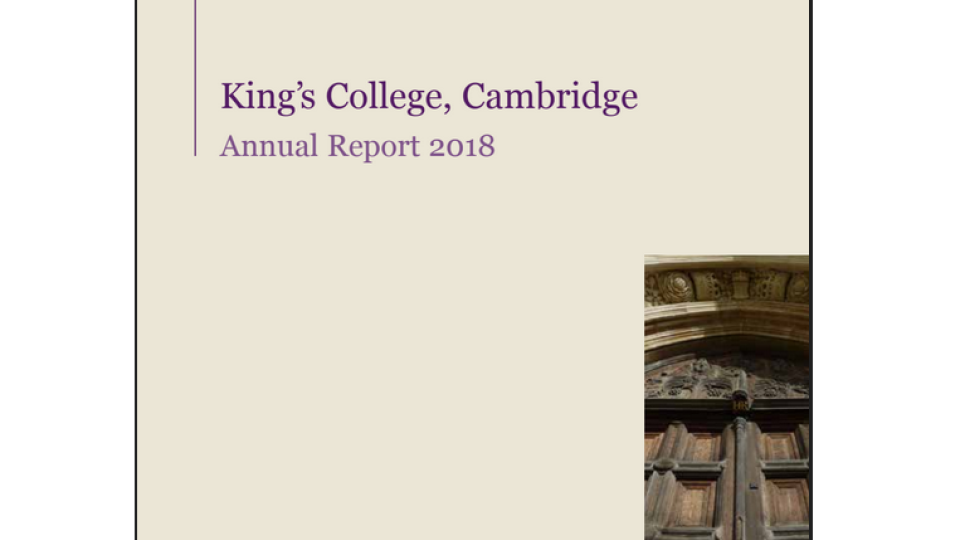These publication scheme webpages have been produced under section 19 of the Freedom of Information Act (2000). They aim to help you find information about the College and its two subsidiary companies easily and quickly. Much of the information pertinent to publication schemes is the same for the College and its subsidiaries, and that information is listed below.
Our Publication Schemes
For administrative purposes, the College is divided into the following: King’s College, Cambridge including King’s College School; King's College, Cambridge Developments Ltd (major building projects); and King's College, Cambridge Enterprises Ltd (Chapel Shop accounts, Development Office accounts, Senior Wine Account, and part of Catering Department accounts). The latter two entities have separate publication schemes. King’s College, Cambridge manages all publication schemes. You can go directly to the publication schemes here:
About Our Publication Schemes
1. Legal requirement
Adopting a publication scheme is a requirement of the Freedom of Information Act 2000. This Act promotes greater openness and accountability across the public sector by requiring all ‘public authorities’ to make information available proactively, through a publication scheme.
‘Public authorities’ are defined in the Act and include universities, the colleges of Oxford and Cambridge Universities, further education colleges and sixth form colleges.
2. What is a publication scheme?
A publication scheme is a document which describes the information a public authority publishes, or intends to publish. In this context, ‘publish’ means to make information freely available. These descriptions are called ‘classes of information’. The scheme is not a list of the actual publications, because this will change as new material is published or existing material revised. It is, however, the public authority’s commitment to make available the information described.
A publication scheme must set out the classes of information published. It must also make clear how the information described can be accessed and whether or not charges will be made.
3. The Model Publication Scheme (MPS)
Seven classes of information form the Model Publication Scheme devised by the Information Commissioner’s Office. From 1 January 2009 (revised September 2013), all public authorities are required to structure their publication schemes according to this model. King’s College maintains three publication schemes, one for the College and one for each of its two subsidiary companies: King’s College, Cambridge Developments Limited and King’s College, Cambridge Enterprises Limited.
The King’s College, Cambridge publication scheme provides an overview of regularly published information. It is comprehensive but not minutely detailed. A fuller listing of the published information is provided in the Guide to Information. The guide is organised differently from the MPS. Numbers in the MPS refer to the relevant sections in the Guide to Information (GTI) where further information might be available. This document can be found at the bottom of this page. Where no cross-reference is given you may assume the College does not routinely make documents available about that piece of information. However if you have questions you should still ask, as some information may be available. See section 5 below.
Understanding that not all public authorities have the same sorts of information to publish, the Information Commissioner’s Office has produced Definition Documents which further describe the information they expect to be published within certain sectors. The King’s College publication schemes have been produced using the Definition Documents for Higher Education Institutions.
4. Accessing information covered by the publication scheme
Most of the information is published on our website. Documents available in hardcopy - as paper - only will be provided subject to a charge, unless otherwise indicated in the publication scheme. Any of the documents on the publication scheme may be requested in paper by writing to the Freedom of Information Officer – see below for contact details. The charge will include a per-page photocopy charge, a postage charge and possibly (for very large documents) a handling fee. You will be informed of the charge, and how it was calculated, before we process your request.
To request information available through our publication scheme, please contact:
Freedom of Information Officer
King's College
Cambridge CB2 1ST
United Kingdom
Email for Freedom of Information enquiries: foi@kings.cam.ac.uk
Tel: (44) (0)1223 331444
5. What about information not covered by the publication scheme?
The Information Commissioner’s Office advises that information listed in the MPS should exclude classes of information that are not routinely published. There is therefore a good deal of information that is disclosable under the Freedom of Information Act but is not listed in this publication scheme. For example student files can be consulted 90 years after the student matriculated, but the College does not routinely publish student files and so they do not appear in the MPS. Personal data and information which affects the commercial operations of the College are two examples of information that may initially be exempt but become publishable as time passes. If the information you seek is not listed in the publication scheme, you should still ask about it.
You have the right, under the Freedom of Information Act 2000, to request any information held by a public authority whether or not it has been made available through its publication scheme. Requests have to be made in writing and, in general, public authorities have 20 working days to respond. The College may charge a fee, which will be calculated according to Fees Regulations. If a fee is required, it must be paid in advance. If the fee is not paid within three months of requesting it then the request will lapse. Please note that in accordance with section 12 of the Freedom of Information Act, King’s College reserves the right to refuse a request where the cost of researching, extracting or copying the information is disproportionately high.
The Freedom of Information Act 2000 also sets out the following circumstances where the duty to disclose information does not arise: When a requester, following prompting and assistance, does not give an adequate description of the information required to allow that information to be identified; and when requests are vexatious or repeated.
King’s College will not be required to release information to which an exemption in the Act legitimately applies. However, we are required to explain to the applicant why we are not releasing information and we may also have to justify this to the Information Commissioner. These exemptions include:
Information already available elsewhere. If this is the case we will endeavour to direct you to where you will find the information you require.
Information provided in confidence. We are required to hold this information confidentially and not to disclose it.
Not all minutes of College meetings will be published routinely. When you request non-open-business minutes of College meetings a decision will be taken as to how much of the information is publishable and how much falls under relevant exemptions. You will be given as much information as possible about the reasons for our decision.
Personal information. This is covered by the Data Protection Act and is generally only available to the individual concerned.
Information which might endanger the physical or mental health or personal security of any individual.
Investigations and proceedings conducted by public authorities.
Information intended for future publication. If we intend to publish the information you want you may have to wait until it is published before you can have access to it.
Information which could prejudice the commercial interests of the College, another institution or an individual.
Please note that there are twenty-three exemptions included in the Act. For a full list please see the Information Commissioner’s website.
To request information not specifically available through our publication scheme, please contact the Freedom of Information Officer at the address in section 4.
6. Copyright
King’s College, Cambridge owns copyright in publications within its scheme. King’s College, Cambridge Development Ltd. owns copyright in publications within its scheme. King’s College, Cambridge Enterprises Ltd. owns copyright in publications within its scheme. Copies of these publications may be made for purposes of private study or research without permission, in accordance with the Copyright, Designs and Patents Act 1988. Applications for commercial reproduction should be made in writing to the Freedom of Information Officer at the address in section 4.
7. Feedback
It is important that these publication schemes and the Guide to Information meet your needs. If you find the schemes or Guide difficult to understand, please let us know. We also welcome suggestions as to how our schemes and Guide might be improved. Any comments about the schemes, or questions/complaints regarding an information enquiry should be sent in writing to the address in section 4.
If you are not satisfied with the way the Freedom of Information Officer has dealt with your request, you should send your complaint in writing to:
The Bursar
King's College
Cambridge CB2 1ST
United Kingdom
Email: first.bursar@kings.cam.ac.uk
Tel: (44) (0)1223 331253
If we are unable to resolve any complaint, you can complain to the Information Commissioner, the independent body that oversees the Freedom of Information Act:
Information Commissioner
Wycliffe House
Water Lane
Wilmslow
Cheshire SK9 5AF
United Kingdom
The Information Commissioner’s Office will not usually consider complaints unless you have undertaken the internal complaints procedures as outlined at the beginning of this section.
8. Further information
More information about the Freedom of Information Act is available on the Information Commissioner’s website.

